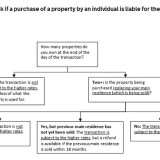Conveyancing for Buyers (Purchase)
Here’s our simplified guide to conveyancing for buyers. We’ll run through the conveyancing process step by step. This guide is for residential property transfers (buying a home).
Who does the conveyancing?
It is perfectly legal to do this yourself! But the majority of mortgage lenders and sellers will prevent you. Due to the heightened risks or DIY conveyancing, they’ll require that you use a solicitor or a conveyancing firm.
We recommend that you find a conveyancer or a solicitor and “instruct them” to do the conveyancing for you.
Conveyancing Process (for buying)
Step 1
Your Conveyancer will write to the sellers’ conveyancer/solicitor to confirm they have been instructed. They’ll request a copy of the draft contract, this outlines:
- Yours and the seller’s details.
- Details of prices.
- Which specific fixtures and fittings are included in the price.
- Details of the sellers title deeds.
Legal Work
Your conveyancer will review and negotiate the terms of the draft contract on your behalf.
You will be expected to go through the forms/contracts the seller has completed. Make sure you let your conveyancer know if you have any questions or concerns.
Step 2 – Property searches.
Your Conveyancer will arrange for standard searches to be carried out. “Property Searches” are like property checks addressed to the Local Authority. These searches check for any factors you should be aware of, for example:
- Upcoming changes to the locality that may affect the property.
- Is it in a conservation area?
- Is the building listed?
- Plans to build a nuclear power plant next door
Your Conveyancer will also check a number of standard inquiries. Such as: Is the house under planning restrictions? What are the exact boundaries of the property? Who is responsible for specific fences, hedges etc.?
Searches usually take 1-2 weeks, but can take up to 6 weeks. The conveyancer can’t do much about this, be patient and make sure the seller knows you’re waiting on the searches.
Step 3 – Your Mortgage
(skip to step 4 if a mortgage isn’t required). Your solicitor will receive a copy of your mortgage agreement and go through the conditions. When you’re both happy with the mortgage, the Conveyancer will send you a mortgage deed to sign and make the contract formal.
Step 4 – Exchanging contracts.
Before the exchange of contracts, a completion date must be decided upon by both parties, which is usually 4 to 12 weeks after the exchange. On this date you are free to move in.
Your Conveyancer will exchange contracts for you. They’ll check that the seller has an identical contract.
After the contracts are exchanged, you are legally bound to purchase the property. If you do not complete the purchase, you will lose your 10% deposit. This also means that the seller must legally sell and can’t accept any other offers on the property.
Step 5 – Transfer the deeds
Your Conveyancer will lodge your application to the Land Registry to transfer the deeds into your name.
Step 6 – The Conveyancer fees.
Your Conveyancer will send you an invoice for their services. Hopefully you’ve chosen a good Conveyancer and the fees are fair, if they’re not… I’m sorry, but you’ll probably have to pay anyway. They’ll require payment before completing the transaction, not doing so could cost you the deal.
Step 7 – Completion Day.
By now your Conveyancer should’ve sent the money to the seller. Once the seller confirms they have received the money for the sale the house is completed.
You’ll be sent all the legal documents, the transfer deeds and title deeds. (If you have a mortgage, the deeds will be held by your mortgage lender). This can take up to 3 weeks.
You receive the keys, these are normally collected from the estate agents.
Now you can move in; anyone currently living at the property must vacate at a pre-arranged time. Welcome to your new home!
After completion
Your solicitor will tie up some loose ends (Pay Stamp Duty Land Tax on your behalf, make sure you receive your legal documents etc.)







